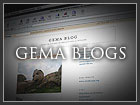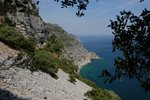(...) "We have difficulty with this term "monument", and our difficulties are worth some thought. The dictionary definition is, rather neat: "anything enduring that serves to commemorate". Its root is even more revealing, for it comes from the Latin "monere", to remind. Monuments are about memory: they join the past to the present.
But that is not the way in which archaeologists have used the term. Monuments are also items of information. Thus we have Sites and Monument Records, and, by extension, we have the prehistorian's idea of the monumental as something outrageous and massive which flouts the Principle of Least Effort (Trigger, 1990).
So monuments evoke memory. Personal memories, no doubt, but to echo the title of Paul Connerton's book, how do societies remember (Connerton, 1989; cf Melion and Kiichler, 1991)? One of the main ways in which they do so is through rituals. Among other things, ritual is a specialised kind of communication, and it is one that can embody a different sense of time from everyday affairs.
In ritual the past reaches right into the present, and the two cannot be separated. It is a source of timeless propositions about the world, of eternal verities whose authority is guarded by specialised methods of communication." (...)









No comments:
Post a Comment